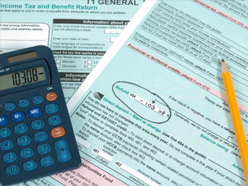
Despite the anxiety that often accompanies tax season, almost half of Canadians take the do-it-yourself approach to doing taxes. There are instances, however, where they need to rely on professional advice.
According to the BMO Nesbitt Burns Tax Report, many Canadians lack knowledge on how investment income is taxed.
“It’s encouraging to see that Canadians are feeling confident about their tax return, but it is critical to understand the full picture on how you are being taxed—especially with investments,” said John Waters, vice-president and head of tax, estate and trust expertise, wealth group, BMO Nesbitt Burns. “The taxation of investment income can have a real impact on net returns, which is why it is necessary to understand how you are being taxed before making investment decisions throughout the year.”
The study found that 84% of the respondents feel confident in their ability to file taxes and take advantage of all various tax deductions, but 58% said they did not know the tax implications of capital gains and another 63% said they did not know how dividend income is taxed.
Read: Party’s over for tax-advantaged investing
The study also showed that only one in five Canadians understand the tax implications associated with the transfer of wealth upon death. Waters says this could become a serious issue, especially considering the aging population and the unprecedented shift in wealth from one generation to the next that will occur in the coming decades.
The study also revealed that 42% of Canadians prepare their own tax returns while 38% hire a professional and 18% have a friend or relative do them.
According to the Canada Revenue Agency, the average total tax refund received last year was $1,506. However, 23% of those polled do not anticipate receiving a tax refund this year.
Other findings of the survey include those over the age of 45 are more likely (46%) than those 44 and younger (31%) to say that they understand income taxes.
The survey results also point towards a link between the DIY approach to doing taxes and a sound grasp of tax implications of the Tax Free Savings Account. Seventy-two percent of Canadians who prepare their own tax returns are knowledgeable about the tax implications of TFSAs, compared to only 54% of those who do not prepare their own returns.
Read: Tax articles to share with your clients
Talking points for clients:
Get professional help: In order to ensure your investments and tax goals are aligned, seek professionals advice of an investment advisor or accountant.
Do your research: Take advantage of the numerous online educational resources that can provide simple tips on how investments are taxed.
Understand capital gains: There are several ways to minimize taxes on capital gains, including: catching up on unused RRSP room; delaying or deferring the gains to next year; using capital losses to offset gains; and donating appreciated publicly-traded securities to a charity.
Use your RRSP: Be aware of the high tax rates applied to interest income and consider holding any interest-bearing investments in your RRSP, where the income grows tax-deferred until withdrawn from the plan.
Invest in preferred shares: Where appropriate, consider including Canadian preferred shares as part of your income portfolio for a dividend income stream that is generally taxed at a lower effective tax rate than interest.